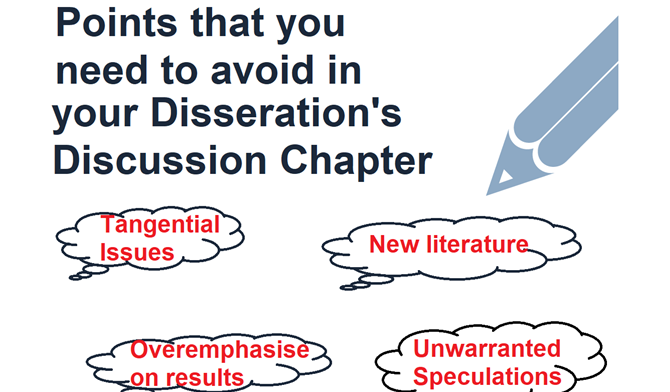
Table of Contents
The nursing dissertation discussion is the culmination of months, even years, of dedicated research. It is the space where you demonstrate your ability to analyze your findings, connect them to existing literature, and ultimately contribute to the advancement of nursing knowledge. A compelling nursing dissertation discussion goes beyond a simple rehashing of results; it’s an engaging narrative that unveils the significance of your research and its implications for the nursing profession.
This guide will equip you with the tools and strategies to craft a compelling nursing dissertation discussion, showcasing your critical thinking, insightful analysis, and deep understanding of your chosen topic.
Steps to Writing a Compelling Nursing Dissertation Discussion
1. Understanding the Purpose of a Nursing Dissertation Discussion
The primary purpose of the nursing dissertation discussion is to:
- Interpret and explain your findings: You need to go beyond merely stating the results and delve into their meaning. What do the findings tell us about the research question? Are there any unexpected patterns or relationships?
- Connect your findings to existing literature: How do your findings align with, challenge, or extend previous research? This demonstrates your understanding of the broader context of your study.
- Discuss the implications of your findings: What are the practical implications of your findings for nurses, patients, and healthcare systems? How can your research be applied to improve nursing practice, policy, or education?
- Identify limitations and suggest future research directions: Acknowledge the limitations of your study and how they might impact the findings. Then, propose future research that could build on your findings and address the identified limitations.
2. Crafting a Narrative Structure for Your Nursing Dissertation Discussion
A compelling nursing dissertation discussion unfolds like a story, guiding the reader through your analysis and insights. Consider structuring your discussion using the following framework:

a. Introduction to the Discussion:
- Begin by briefly restating your research question and the main findings of your study.
- Provide a brief overview of the main themes and key issues that will be explored in the discussion.
- This section sets the stage for the deeper analysis that follows.
b. In-Depth Analysis of Findings:
- Address each key finding in detail, linking it to relevant literature and providing a comprehensive interpretation.
- Explore the significance of each finding, considering its potential implications for nursing practice, patient care, and research.
- Use a combination of descriptive and analytical language to explain the meaning and impact of your findings.
c. Connecting to Existing Literature:
- Integrate existing literature throughout the discussion, highlighting how your findings align with, contradict, or expand on previous research.
- Clearly identify the gaps in the literature that your research addresses and how it contributes to a deeper understanding of the topic.
- Provide evidence to support your claims and interpretations, drawing on both your own data and relevant scholarly sources.
d. Discussion of Implications:
- Consider the broader implications of your findings, focusing on their relevance to nursing practice, patient care, education, and policy.
- Explain how your research can be applied to improve nursing outcomes, address current challenges in healthcare, or inform future research.
- Use specific examples and scenarios to illustrate the potential impact of your findings.
e. Addressing Limitations and Future Research:
- Honestly acknowledge the limitations of your study and explain how they might have affected your findings.
- Discuss the implications of these limitations for the generalizability and applicability of your research.
- Identify areas for future research that could address the limitations of your study or further explore the implications of your findings.
3. Employing Effective Writing Techniques for a Compelling Nursing Dissertation Discussion
The way you present your analysis and insights plays a crucial role in making your nursing dissertation discussion compelling. Here are some effective writing techniques:
a. Using Clear and Concise Language:
- Employ precise language and avoid jargon that might be unfamiliar to readers outside your field.
- Write in a straightforward and concise manner, avoiding overly complex sentence structures.
- Use active voice whenever possible to create a more direct and engaging tone.
b. Employing a Logical Flow and Organization:
- Organize your discussion logically, ensuring a smooth transition between sections.
- Use clear headings and subheadings to guide the reader through your analysis.
- Employ transitional phrases to connect your ideas and ensure a coherent narrative.
c. Supporting Claims with Evidence:
- Use data from your study, relevant literature, and other credible sources to support your claims.
- Present your evidence in a clear and organized manner, using tables, figures, and charts as needed. Visual elements improve the readability and also help with driving your points home.
- Avoid making unsupported claims or generalizing your findings beyond the scope of your research. Maintain proper focus on your study and its findings.
d. Engaging the Reader through a Critical and Reflective Tone:
- Avoid merely stating facts and engage in a critical and reflective analysis of your findings.
- Ask thought-provoking questions and encourage the reader to consider the implications of your research. That would add greater meaning to your work and enhance its credibility.
- Demonstrate your deep understanding of the topic by offering insightful interpretations and connections.
e. Avoiding Common Mistakes in the Nursing Dissertation Discussion
- Overstating Findings: Avoid overemphasizing the significance of your findings or making claims that are not supported by your data.
- Repeating the Results: Don’t simply reiterate the results from your data analysis. Instead, focus on interpreting their meaning and implications.
- Ignoring Limitations: Acknowledge and discuss the limitations of your study, demonstrating your awareness of their potential impact on your findings.
- Lack of Coherence: Ensure your discussion flows logically, with clear connections between sections and ideas.
- Insufficient Evidence: Provide strong evidence to support your claims, drawing from your data, relevant literature, and credible sources.
4. Seeking Feedback and Revising Your Nursing Dissertation Discussion
Once you have drafted your nursing dissertation discussion, it’s crucial to seek feedback from your advisor, colleagues, and peers. Their insights can help you:
- Identify any gaps in your analysis or interpretation.
- Ensure your discussion is well-organized, clear, and concise.
- Assess the overall clarity and effectiveness of your writing.
Be open to feedback and use it to revise your discussion, making it even more compelling and insightful.
5. Strategies for Creating a Compelling Nursing Dissertation Discussion
- Start Early: Begin working on your nursing dissertation discussion well in advance of your deadline to allow time for thorough analysis, revision, and feedback.
- Engage in Deep Reflection: Take the time to fully explore the meaning and significance of your findings, challenging your assumptions and seeking deeper insights.
- Collaborate with Others: Discuss your ideas with your advisor, colleagues, and peers to gain different perspectives and refine your analysis.
- Think Critically: Go beyond simply stating facts and engage in a critical and reflective analysis of your findings.
Navigating the Pitfalls of a Nursing Dissertation Discussion
The nursing dissertation discussion is your opportunity to showcase your understanding of your research findings and their implications for nursing practice. However, this section can be tricky to navigate, with several common pitfalls that can hinder the impact of your work. Here are some key pitfalls to avoid and how to rectify them:
- Rehashing the results: The nursing dissertation discussion is not a mere repetition of the results section. While summarizing key findings is necessary, the focus should be on interpretation, analysis, and their significance. Avoid simply stating “the results showed…” and instead, delve into “what the results mean” in the context of your research question.
- Ignoring limitations: Acknowledging the limitations of your nursing dissertation discussion is crucial for establishing credibility. This demonstrates your awareness of potential biases and shortcomings, enhancing the overall rigor of your research. Clearly identify the limitations, explain their potential impact on your findings, and offer suggestions for future research to address them.
- Overreaching conclusions: A common trap is drawing overly broad conclusions from your findings. Stay grounded in your data and avoid making claims that go beyond what your research supports. Instead, focus on the specific implications of your findings for nursing practice, education, or research within the context of your study.
- Lack of coherence: A well-structured nursing dissertation discussion should flow logically, connecting findings to existing literature and theoretical frameworks. Ensure clear transitions between paragraphs and sections, creating a compelling narrative that guides the reader through your interpretation and analysis.
- Poorly written discussion: The writing style of your nursing dissertation discussion should be clear, concise, and persuasive. Avoid jargon, overly technical language, or lengthy sentences that obscure your meaning. Use active voice, strong verbs, and avoid subjective language.

By carefully avoiding these pitfalls, your nursing dissertation discussion can effectively communicate the significance of your research and contribute meaningfully to the field of nursing.
Examples of a Compelling Nursing Dissertation Discussion Sections
- Discussion: The Impact of Mindfulness-Based Stress Reduction on Postpartum Depression Symptoms in First-Time Mothers
This dissertation investigated the impact of Mindfulness-Based Stress Reduction (MBSR) on postpartum depression (PPD) symptoms in first-time mothers. The findings demonstrated a statistically significant reduction in PPD symptoms among participants who completed the MBSR program compared to the control group. This finding aligns with a growing body of research highlighting the potential benefits of mindfulness-based interventions for managing mental health challenges, including PPD.
Interpreting Key Findings:
The significant reduction in PPD symptoms observed in the intervention group suggests that MBSR can be a valuable tool for addressing PPD in first-time mothers. This is particularly noteworthy as PPD is a prevalent condition affecting approximately 10-20% of mothers in the postpartum period (Dennis & McQueen, 2017).
The study’s findings provide strong support for the efficacy of MBSR in reducing PPD symptoms. Notably, the intervention group experienced a significant decrease in depressive symptoms, anxiety levels, and stress scores. These findings align with previous studies demonstrating the effectiveness of MBSR in mitigating stress and promoting emotional well-being in various populations (Kabat-Zinn et al., 1992).
Connecting to Existing Literature:
This research contributes to the growing literature on the application of mindfulness-based interventions for addressing mental health challenges. The study supports previous findings suggesting that MBSR can be an effective treatment for PPD, contributing to a deeper understanding of this intervention’s potential in the context of maternal mental health (Goyal et al., 2014).
Previous research has highlighted the efficacy of MBSR in reducing stress and improving emotional well-being (Kabat-Zinn et al., 1992). This study extends these findings by demonstrating the specific benefits of MBSR for addressing PPD symptoms in first-time mothers.
Implications for Nursing Practice:
This study emphasizes the importance of incorporating mindfulness-based interventions into clinical practice for managing PPD. Nurses can play a crucial role in educating mothers about the benefits of MBSR and facilitating access to these interventions. The findings suggest that MBSR can be a valuable tool for empowering mothers to manage their stress, improve their mental well-being, and navigate the challenges of the postpartum period.
Nurses can incorporate mindfulness practices into their care plans for postpartum mothers, promoting relaxation techniques, stress management strategies, and emotional regulation skills. The findings also suggest a potential for developing specialized MBSR programs specifically tailored to the unique needs of postpartum mothers.
Limitations and Future Research:
This study has certain limitations, including a relatively small sample size and the study’s focus on first-time mothers. Future research should investigate the effectiveness of MBSR in diverse populations of mothers, including those experiencing their second or subsequent pregnancies.
Further research is needed to explore the long-term effects of MBSR on PPD symptoms and the optimal frequency and duration of intervention. Exploring the effectiveness of MBSR in conjunction with other therapeutic approaches for PPD could also be a valuable direction for future research.
Conclusion:
This dissertation provides evidence that MBSR is a promising intervention for reducing PPD symptoms in first-time mothers. The findings contribute to a growing body of research highlighting the potential benefits of mindfulness-based interventions for addressing mental health challenges. This research underscores the importance of nurses actively promoting MBSR as a valuable tool for managing PPD and enhancing the well-being of mothers in the postpartum period. Future research should further explore the application and effectiveness of MBSR in diverse populations and in combination with other therapeutic modalities for PPD.
2. The Impact of Mindfulness-Based Interventions on Nurse Burnout: A Discussion
This study investigated the impact of mindfulness-based interventions (MBIs) on nurse burnout. The findings revealed a statistically significant reduction in burnout symptoms among nurses who participated in the MBI program, as measured by the Maslach Burnout Inventory. This reduction was observed across all three dimensions of burnout – emotional exhaustion, depersonalization, and personal accomplishment.
These findings align with previous research indicating the potential benefits of MBIs in mitigating occupational stress and promoting well-being. By fostering self-awareness, emotional regulation, and stress management skills, MBIs empower nurses to cope with the demanding nature of their work and maintain their professional resilience.
However, it is important to acknowledge limitations of this study. The relatively small sample size and the self-reported nature of the data necessitate cautious interpretation of the findings. Further research with larger, more diverse populations and utilizing objective measures of burnout would strengthen the generalizability of these results.
Despite these limitations, this study highlights the promising role of MBIs in addressing the pervasive issue of nurse burnout. Future research should explore optimal delivery methods, tailoring interventions to specific nursing specialties, and evaluating the long-term sustainability of MBI effects. By investing in strategies that promote nurse well-being, healthcare organizations can create a more supportive work environment, improve patient care quality, and address the critical nursing shortage.
Note: These are just sample discussion section of two nursing dissertations. The specific content and structure on the one that you will write will vary depending on your research question, methodology, and findings. Remember to use clear and concise language, support your claims with evidence, and address the limitations of your study in every paper. You can still refer to trusted academic platforms forms such as Nursing Papers for more samples to get a complete picture of how an ideal nursing dissertation discussion section should look and sound.
The Bottom Line
Crafting a compelling nursing dissertation discussion is a key step in advancing your research and contributing to the body of knowledge in nursing. By following these guidelines, you can present a well-structured, insightful, and impactful discussion that showcases your critical thinking skills and deep understanding of your chosen topic.

Remember, the nursing dissertation discussion is not merely a summary of your findings; it’s a powerful narrative that reveals the significance of your research and its potential to improve nursing practice, patient care, and the broader healthcare system. By dedicating time, effort, and critical reflection to this essential element of your dissertation, you can make a valuable contribution to the nursing profession.
Get Professional Nursing Dissertation Writing Help
Are you looking for help with writing the nursing dissertation discussion section? Then, look no further than PhD Nurse Writer for professional assistance. We offer customized dissertation writing help for Degree, Master’s and Doctorate nursing courses. Our expert writers can also assist you with writing nursing research papers, essays and case studies.





